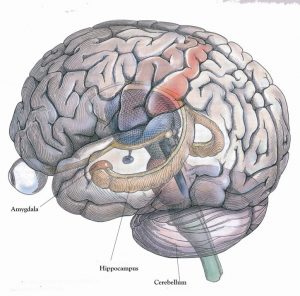Canada currently has the third largest video game industry in the world. As a leader in the industry, it comes to no surprise that over 19 million Canadians identify as gamers. In doing so, as the societal interest in video games increases, so does the interest to research the effects of gaming, especially on students.

Child playing Fortnite. Image from Alex Haney, Unsplash
What does past research show?
Past research has shown that gaming by young people can lead them to develop a variety of detrimental behaviours. Children who played violent games had a higher likelihood of being more antisocial, more aggressive, and less empathetic than their non-gaming peers. Other studies have shown that excessive gaming can have a similar effect on a child’s brain as drugs and alcohol. This effect would lead to poor school performance and a higher likelihood of developing other addictions later in life. These results highlight the issues behind unhealthy gaming behaviour that goes beyond the limits of a hobby. While these results are very important to consider, there may be some benefits to gaming.
Is there any current research on gaming?
A recent study done by Ruhr-Universität Bochum compared the learning of gamers and non-gamers. Of the 34 participants, 17 volunteers did not play games regularly, and the other 17 played for 15+ hours a week. Both groups completed a weather prediction task while being recorded by an MRI.
In the task, participants were shown a combination of cue cards with varying symbols. Based on the cards shown, they had to guess whether that particular combination predicted sun or rain. With each guess, participants were given feedback on whether they were correct or not. This feedback would lead to learning of the combinations by all participants, but at varying rates.

Diagram of the brain showing the hippocampus, amygdala and cerebellum. Image from picturesboss.com
What are the effects of gaming on learning?
The results showed that gamers were significantly better at learning the card combinations with a faster learning curve and more correct answers. While the non-gamers did show learning, they were much slower in comparison. Also, the MRI scans showed that gamers had a stronger activation response in the hippocampus and surrounding regions of the brain. All of which are associated with learning and memory.
Based on these results, researchers were able to conclude that gaming helped individuals in probability-based tasks, which are activities that requires individuals to learn rules as they go. Gamers displayed a heightened ability to analyze and adapt to a new situation. This adaptation showed that players had a much better categorization performance, where they are able to generate and classify new information quickly. Thus illustrating that video games helped enhance learning performance rather than deter it.
While excessive gaming can have detrimental effects, there also are some beneficial factors. Video games, when done in moderation, allows individuals to learn more rapidly by training their hippocampus to be quick and effective. Video games create a challenging environment that pushes players to problem-solve and think creatively to achieve their goals. Looking ahead, researchers believe that further studies can be done to see whether games can help older people reduce the effects of memory loss.
– Arrthy Thayaparan
